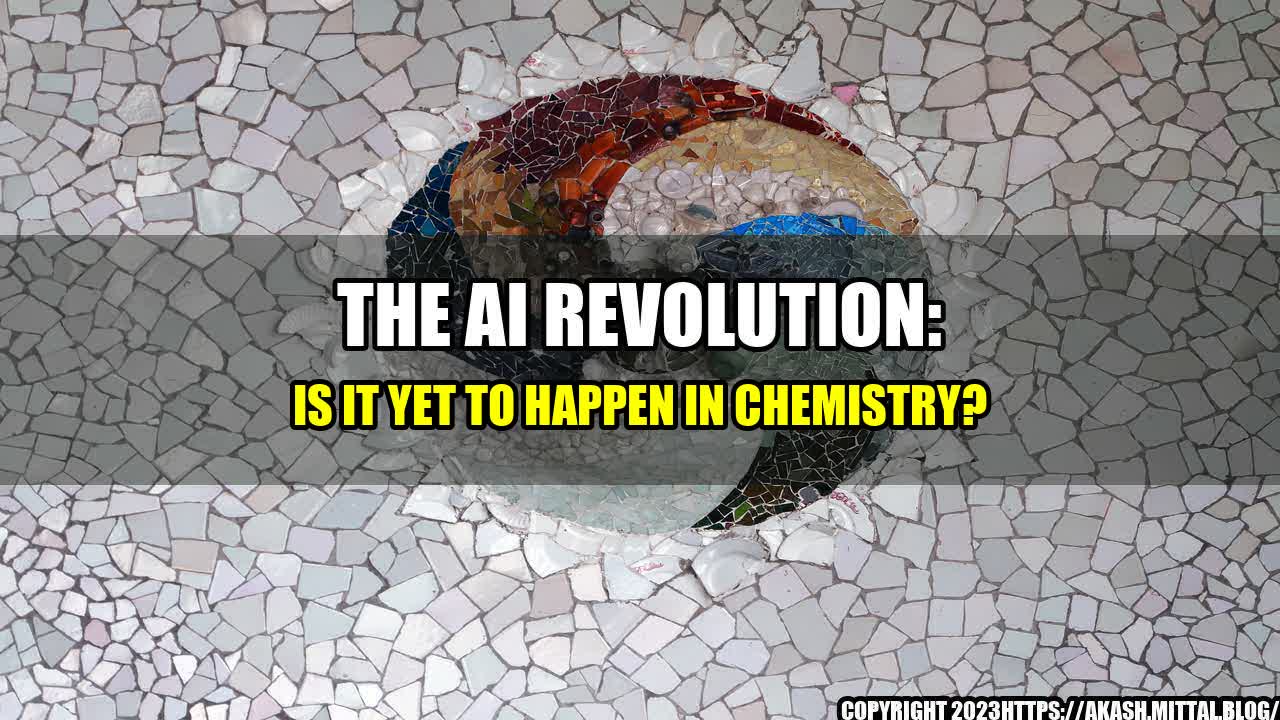When AI Failed to Recognize the Recipe of a Popular Soft Drink
Back in 2019, PepsiCo's attempt to use AI to optimize the formulation of its soft drink failed miserably. The problem was that the AI couldn't recognize the recipe of the drink, which is kept a closely guarded secret. In fact, the AI produced a concoction that tasted so bad that even trained taste testers couldn't stomach it.
This amusing incident shows that even the most sophisticated AI is not infallible, especially when it comes to chemistry. Despite the hype surrounding AI in recent years, the reality is that for chemists, the AI revolution has yet to happen.
AI in Chemistry
Of course, this is not to say that AI has no place in chemistry. There are already a number of examples where AI and machine learning have been successfully applied in this field, such as:
- Predicting the properties of new materials and molecules
- Designing new drugs and vaccines
- Optimizing chemical processes and reactions
However, these are still largely experimental and niche applications, and are not yet widespread throughout the chemistry industry. Indeed, the majority of chemists still rely on traditional methods and tools such as trial and error, experiments, and scientific intuition to carry out their work.
Why Hasn't the AI Revolution Happened Yet?
There are several reasons why the AI revolution has yet to happen in chemistry:
- Lack of reliable data: AI requires vast amounts of data to learn and improve, but in chemistry, the quality and availability of data can be limited. For instance, many chemical reactions are still poorly understood and have not been adequately documented.
- Complexity of chemical systems: Chemistry is inherently complex, with many variables that can affect the outcome of a reaction or process. This makes it difficult for AI to accurately predict or optimize results, especially when incomplete or noisy data is involved.
- Resistance to change: Many chemists are skeptical of AI and prefer to rely on traditional methods, or are simply not trained in the use of AI tools and techniques.
Conclusion: Is AI the Future of Chemistry?
While AI has shown promise in helping chemists solve some of their most complex problems, the reality is that the AI revolution has yet to happen in this field. Chemists still largely depend on traditional methods and tools, and there are many hurdles to overcome before AI becomes a viable and widespread solution.
However, this is not to say that AI will never be the future of chemistry. As AI technology continues to develop and improve, and as more data becomes available, there is no doubt that its potential to revolutionize the field will only grow.
In conclusion, chemists should keep an open mind to AI and be willing to experiment with its use in their work. At the same time, they should also be realistic about its limitations and not rely on AI as a panacea for all their problems.
Practical Tips for Using AI in Chemistry:
- Start small: Begin by using AI for specific problems or tasks, rather than trying to completely replace traditional methods.
- Invest in quality data: Ensure that the data you use is reliable and of high quality, as this is the key to successful AI applications.
- Get trained: Attend workshops or courses to learn more about AI and how to use it effectively in chemistry.

Curated by Team Akash.Mittal.Blog
Share on Twitter Share on LinkedIn